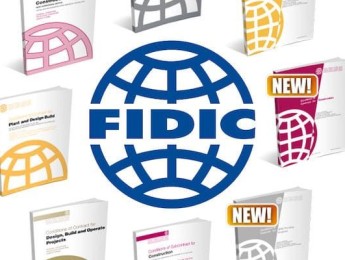The ultimate goal of any business is to achieve maximum profit. However, to do this will always come with risks. If you are your business's decision-maker, you will need to understand which risks will result in a worthwhile return on investment and which may cause you a detriment.
Risk management is the skilled practice of weighing up a decision's potential causes and costs against the gains and losses it may achieve. Developing a foolproof operational process requires calculation, accurate and sophisticated data analysis, and extensive project planning.
Creating a risk management framework also involves considering the employees involved in change, understanding their skills, knowledge, and culture to determine any potential causes and effects of hurdles that may arise, and creating attainable KPIs to manage performance and keep changes on track for profitability.
Upon completion of this course, participants will be able to:
- Familiarise yourself with the best practices related to risk management.
- Create a viable risk management framework for development within your own business.
- Understand the ISO31000 formal risk management structure.
- Evaluate current procedures and processes and identify risks.
- Build a successful and high-performance problem-solving team.
- Learn international risk management standards and what they mean to you.
- Implement methods of critical thinking when deciding on risk factors.
- Analyse the root cause of problems and develop innovative methods of change.
- Prioritise financial and operational risks for mitigation.
- Learn to be confident in deciding when a risk is too much and liaise with teams involved to relay these messages.
This course would be suitable for any professional who is involved in wider business development or change management to help mitigate risks during large-scale business change. It is particularly suitable for:
- Risk Management Professionals
- Change Managers.
- Planning Managers.
- Operations Managers.
- Developing Managers.
- Supervisors.
- Team Managers.
- Health & Safety Managers.
- HR Personnel.
This course utilises various adult learning techniques to develop effective risk management frameworks. It includes trainer-led lectures, groups, seminars, and discussions to help understand where risks appear and how to mitigate them within different business structures.
You will receive data-driven management models and secure real-life case studies to identify where change is required and push to create innovative solutions within your working group to achieve the best outcome.
Day 5 of each course is reserved for a Q&A session, which may occur off-site. For 10-day courses, this also applies to day 10
Section 1: The Different Kinds of Business Risk
- What is risk?
- Operational risks.
- Financial risks.
- Recruitment risks.
- Identifying KRIs (Key Risk Indicators).
- Developing best practices.
Section 2: Business Continuity Plans
- What is a business continuity plan, and why is it important?
- Identifying single points of failure.
- Transferring risks to other areas.
- Evaluation of your own practices. Do you have hidden risks?
- ISO22301.
- ISO/IEC27031 applications.
Section 3: Risk Management Theory and Method
- Compliance vs. risk.
- The reward decision model.
- 9 patterns for critical thinking.
- SWOT analysis.
- Creating a risk management framework.
- ISO31000 frameworks.
- Cost-benefit analysis.
Section 4: Understanding Employee Culture
- Maximising performance to alleviate risks.
- The role of management in alleviating risk.
- Monitoring risk mitigation compliance.
- Presenting change to employees to gain buy-in.
- ERM (Enterprise Risk Management).
- Managing stakeholders and presenting benefits.
Section 5: Evaluating Changes and Reviewing Future Risk
- Setting review timescales.
- Asking for feedback on amendments.
- Evaluating current processes and reviewing potential risks.
- Risk reporting and analysis.
- Tools for reporting and presentation.
- Working towards continuous improvement.
Upon successful completion of this training course, delegates will be awarded a Holistique Training Certificate of Completion. For those who attend and complete the online training course, a Holistique Training e-Certificate will be provided.
Holistique Training Certificates are accredited by the British Assessment Council (BAC) and The CPD Certification Service (CPD), and are certified under ISO 9001, ISO 21001, and ISO 29993 standards.
CPD credits for this course are granted by our Certificates and will be reflected on the Holistique Training Certificate of Completion. In accordance with the standards of The CPD Certification Service, one CPD credit is awarded per hour of course attendance. A maximum of 50 CPD credits can be claimed for any single course we currently offer.
- Course Code MG2-108
- Course Format Classroom, Online,
- Duration 5 days














